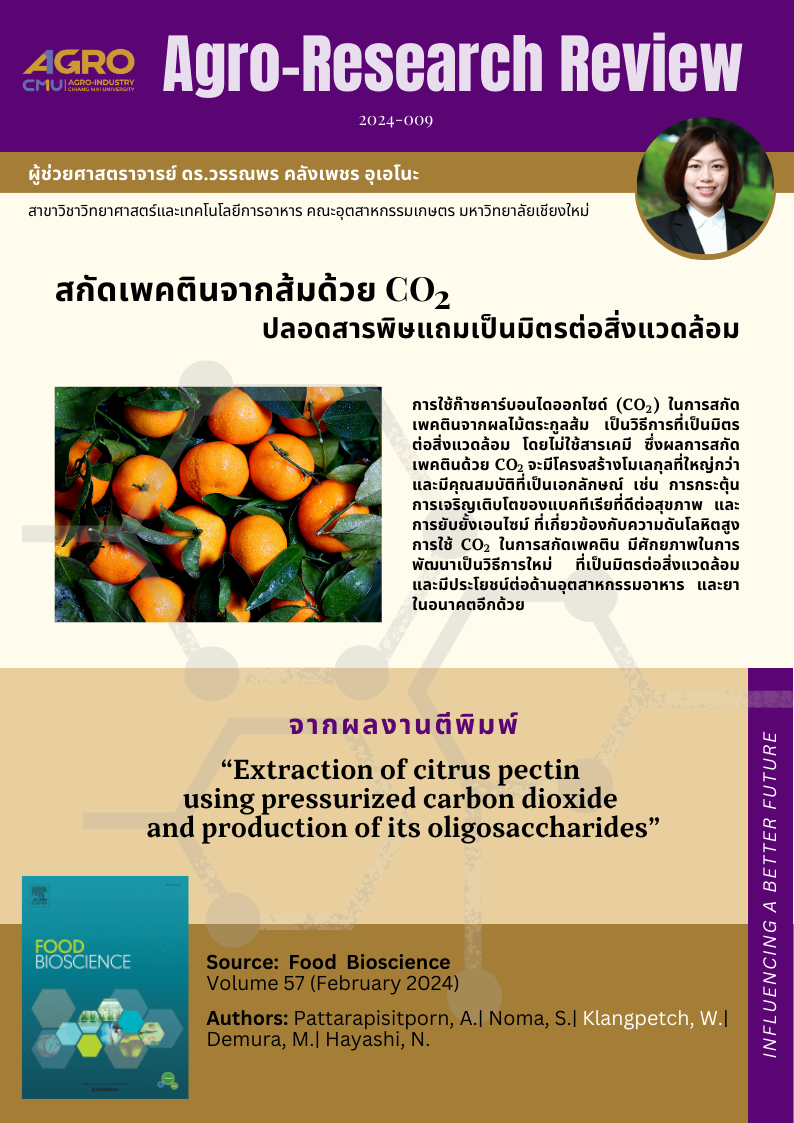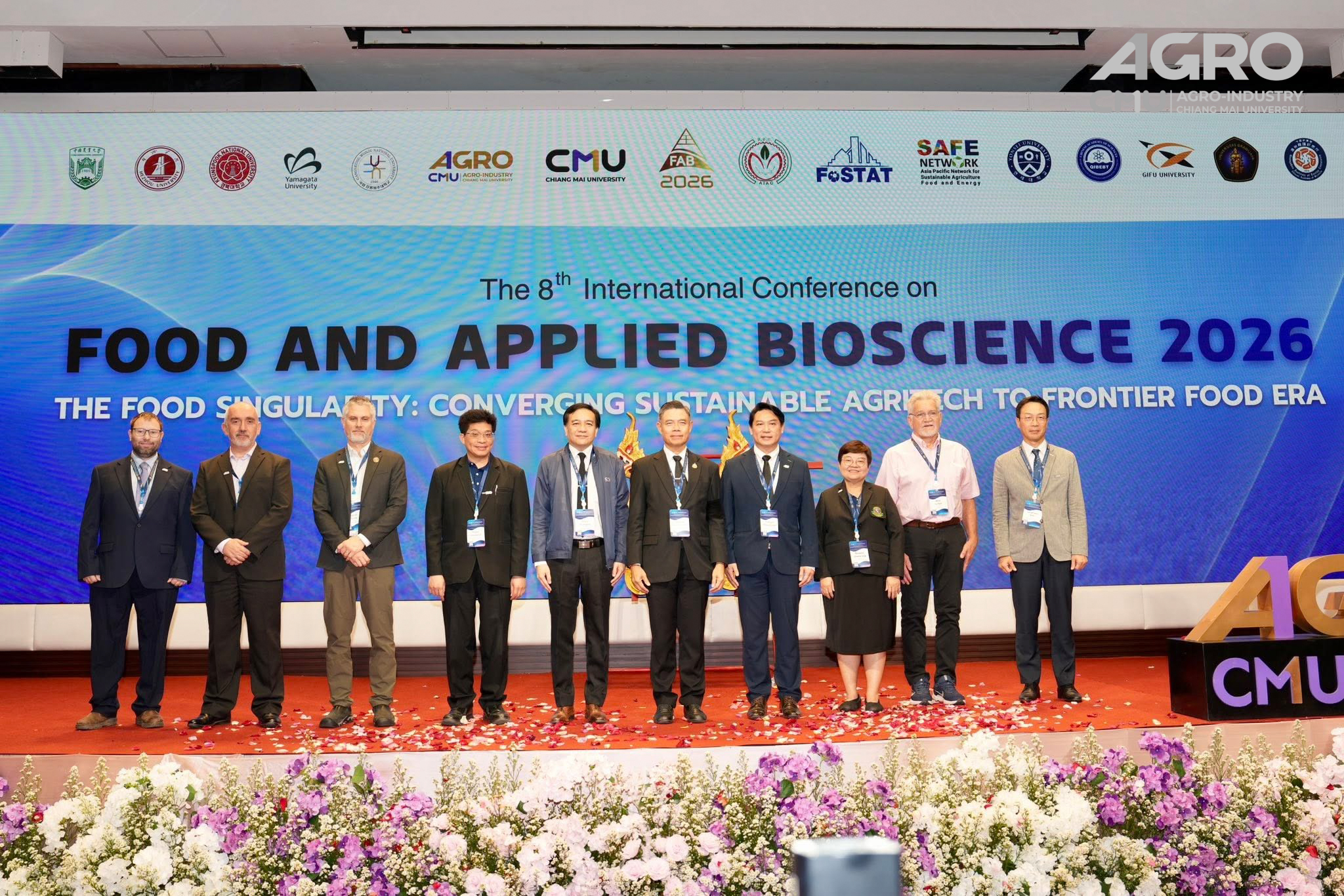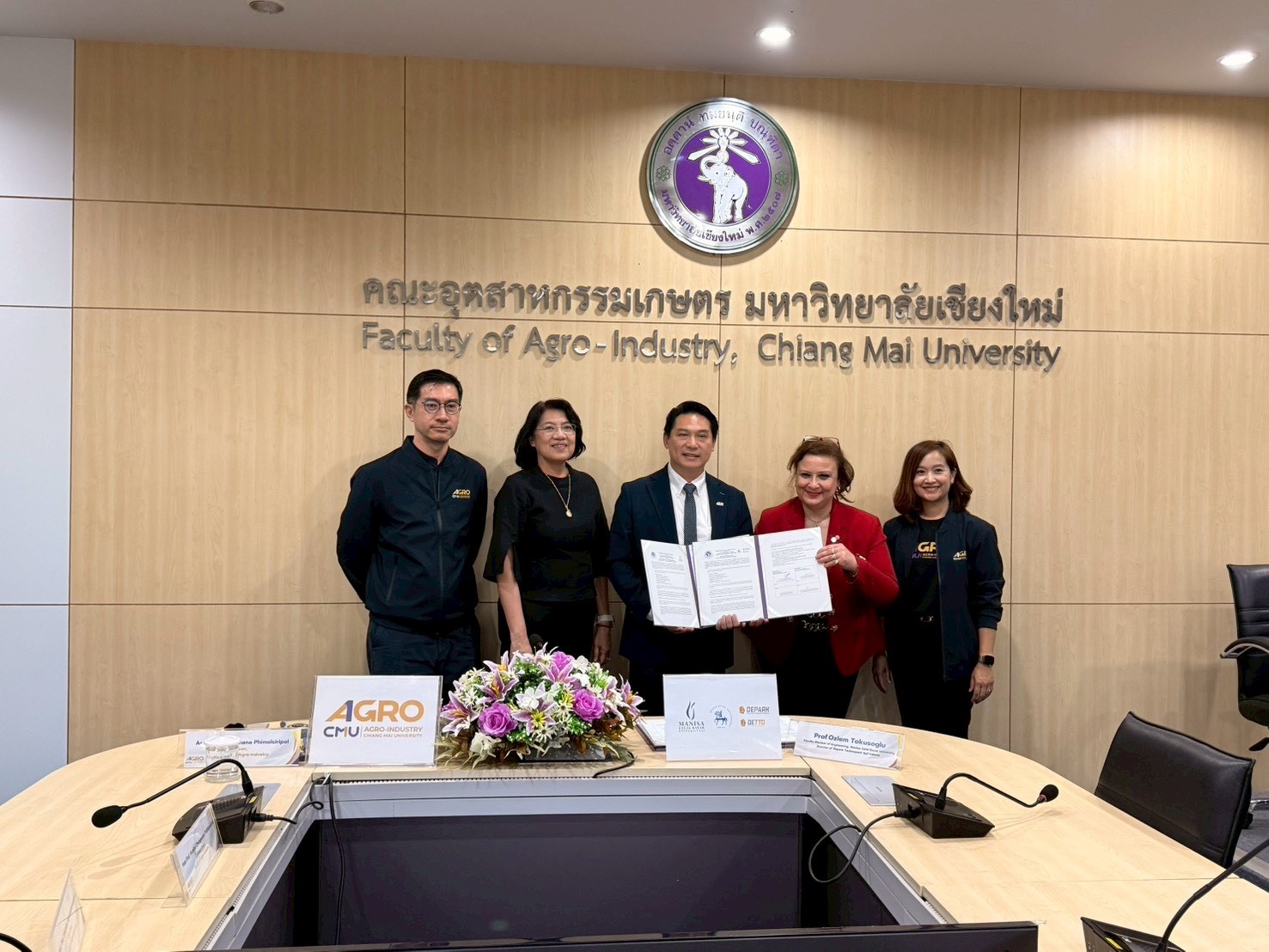
แนะนำงานวิจัย 2024-009 สกัดเพคตินจากส้มด้วยก๊าซคาร์บอนไดออกไซด์ ปลอดสารพิษแถมเป็นมิตรต่อสิ่งแวดล้อม
การใช้ก๊าซคาร์บอนไดออกไซด์ (CO2) ในการสกัดเพคตินจากผลไม้ตระกูลส้ม เป็นวิธีการที่เป็นมิตรต่อสิ่งแวดล้อม โดยไม่ใช้สารเคมี ซึ่งผลการสกัดเพคตินด้วย CO2 จะมีโครงสร้างโมเลกุลที่ใหญ่กว่าและมีคุณสมบัติที่เป็นเอกลักษณ์ เช่น การกระตุ้น การเจริญเติบโตของแบคทีเรียที่ดีต่อสุขภาพ และการยับยั้งเอนไซม์ ที่เกี่ยวข้องกับความดันโลหิตสูง การใช้ CO2 ในการสกัดเพคติน มีศักยภาพในการพัฒนาเป็นวิธีการใหม่ ที่เป็นมิตรต่อสิ่งแวดล้อมและมีประโยชน์ต่อด้านอุตสาหกรรมอาหาร และยาในอนาคตอีกด้วย
In this study, we utilized pressurized carbon dioxide (pCO2) for pectin extraction from citrus residues because of its potential to produce acid without chemicals, that is non-toxic, green technology for humans and the environment. The pectin extracted with CO2 exhibited larger molecular structures and unique properties, such as promoting the growth of beneficial bacteria and inhibiting enzymes associated with high blood pressure. Using CO2 for pectin extraction has the potential to be developed into a novel, environmentally friendly method that could benefit the food and pharmaceutical industries in the future.
Topic:
Authors: Pattarapisitporn, A.| Noma, S.| Klangpetch, W.| Demura, M.| Hayashi, N.
Abstract:
In this study, we utilized pressurized carbon dioxide (pCO2) for pectin extraction from citrus residues because of its potential to produce acid without chemicals, that is non-toxic, green technology for humans and the environment. The pCO2 was performed at 2.5 MPa and 90 °C for 90 min, while the conventional method (CM) for pectin extraction using HCl was performed under atmospheric pressure at 90 °C for 90 min. Pectin extraction yields with pCO2 depended on the type of citrus fruit and were lower than those obtained with the CM. However, pCO2-extracted pectin (pCO2-pectin) provided a higher degree of esterification (DE), neutral sugar side-chain substitution on the pectate backbone, and greater molecular size than those of pectin extracted using the conventional method (CM-pectin). Pectin oligosaccharide (POS) was prepared from CM-pectin and pCO2-pectin using viscozyme L hydrolysis under optimum conditions. These POSs were then designated as CM-POS and pCO2-POS, respectively. Both pCO2-POS and CM-POS stimulated the growth of Lactobacillus and Bifidobacterium species, and induced them to produce short-chain fatty acids, and slightly suppressed immunoglobulin E production in U266 cells. Furthermore, pCO2-POS had higher angiotensin-converting enzyme inhibitory activity compared to CM-POS. This study suggests that pCO2 is a novel method for extracting pectin with unique molecular properties affecting POS functionality in vitro.
Keywords: High-methoxyl pectin; In vitro functionality; Pectic oligosaccharide; Pectin; Pressurized carbon dioxide
View at publisher:
#อกมช. #agrocmu #CMU




